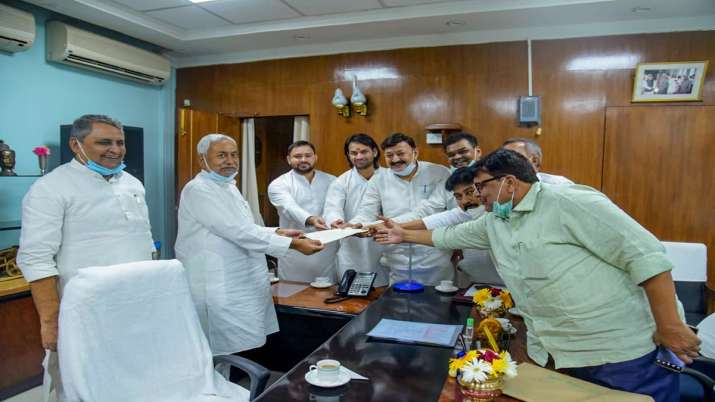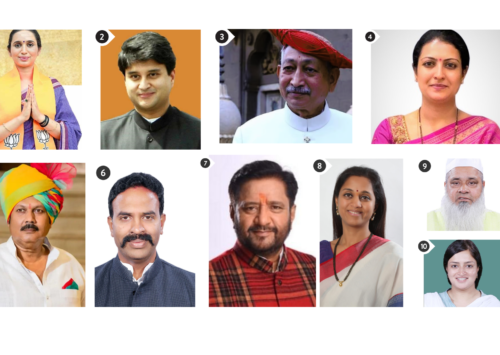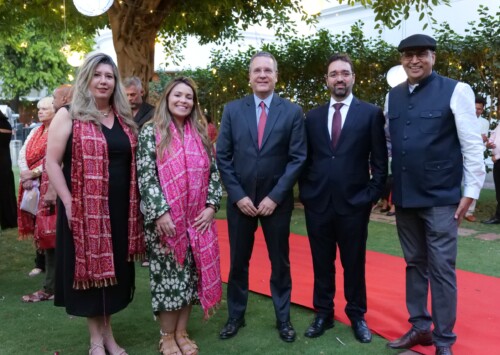Controversy over caste census divides politicians and people
Exactly 90 years after it was dropped, there has been a growing controversy surrounding demand by some political leaders, notably Bihar chief minister Nitish Kumar and former CM Jitan Ram Manjhi, to revive the practice of caste-based enumeration in the country again. Along with the two staunch advocates of caste census, the Union minister of state for Social Justice and Empowerment Ramdas Athawale has also put forth his demand for caste-based enumeration.However, Union minister of state for home affairs Nityanand Rai recently told the Lok Sabha that caste-wise enumeration of the entire population will not take place and as usual it will be limited to the scheduled castes and scheduled tribes.
Ever since independence, census has limited its data collection to the scheduled castes and scheduled tribes excluding the other caste statuses. All other castes were recognised in the census until 1931. A decade later, in 1941, information was collected on all other castes residing in India but was not published for the public. According to British administration of the time it was too costly an affair to be taken into consideration in the backdrop of World War II.
The support for resumption of this census is in various parts of the country, cutting across party lines. For instance, led by the national secretary of the Bharatiya Janata Party Pankaja Munde, the Maharashtra assembly reiterated its resolution asking the Centre to hold caste-based census for 2021. The National Commission for Backward Classes has also urged the government to conduct caste-based census.
Supporters of return to caste-based census say that in the absence of an intricate census, many underprivileged and deprived caste groups such as the Other Backward Classes, and still many sections within the OBCs, it will be difficult to identify these sections and help them to advance and be at the same level as rest of the society.
About 30 years ago, the Mandal Commission had estimated OBCs to make about 52 pc of the total population. However, some say that looking at the series of complexities that lay in the path of such an exercise, it appears that the present stand of the government is not entirely wrong. The list of OBCs recognised by the Centre is entirely different from that specific to states. This prevents the government from preparing a comprehensive data that can be used for the entire nation. This shortcoming is further vexed by the fact that some states have OBCs in their list while some others do not have the same. Those states who mention OBCs in their census have further sub-groups within them known as Most Backward Classes.
Adding to the dilemma, some caste names appear in both OBC and Scheduled Caste lists along with those who have converted to Islam or Christianity being treated differently in different states. The issue of destitute and orphans poses another challenge to the caste census. The children from inter-caste marriages remain unlabelled thus, these questions confronting the government pose as a barrier to the process of caste census. Though in response to rising demands and debates, the SECC (Socio-Economic Caste Census) had been decided upon back in 2016.
The socio-economic caste census conducted by the ministry of rural development in rural areas and the ministry of housing and urban poverty alleviation in urban areas was finalised and published in 2016. As stated by a parliamentary committee on rural development, the final data of the SECC is said to be 98.87 pc error free with respect to the citizen’s caste and religion.
Opponents
Amongst the numerous opponents of a caste-based census is the Rashtriya Swayamsevak Sangh, the parent organisation of the ruling BJP. The RSS had already been a vocal opponent of the idea way back in 2011 when some political parties wanted the survey to be based on castes. Suresh Joshi, a member of the RSS from Nagpur, had emphasised that caste-based determination should be avoided, saying that the idea went against the concept of a casteless society which Baba Saheb Ambedkar, Dalit leader and Father of the Indian Constitution, had envisioned during the framing of the Constitution.
“The entire population needs to be taken into consideration in the census. Only then a holistic approach can be arrived at for the upliftment of the many deprived castes that fall under OBC. There are many sub-tribes and sub-castes that fall under scheduled tribes and scheduled castes who need upliftment through education and employment opportunities. This has to be the sole purpose of a caste census, otherwise the very purpose will be defeated behind the census,” says Aman Madan, a practising lawyer in Delhi.
With elections approaching in several states, notably Uttar Pradesh, the largest in the country, it is certain that the pitch of demand for a caste census is only set to rise.










